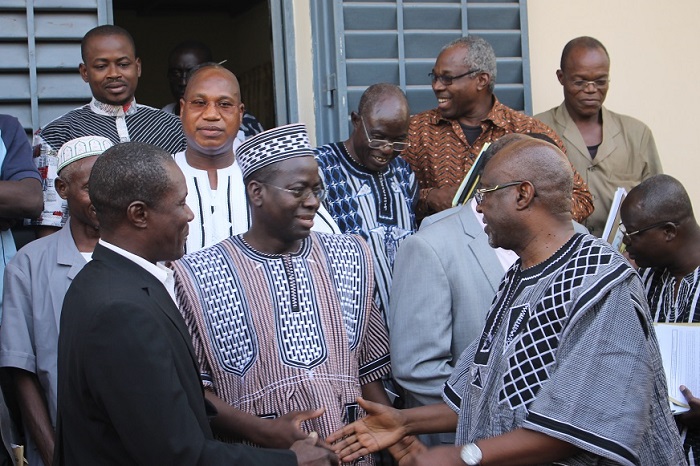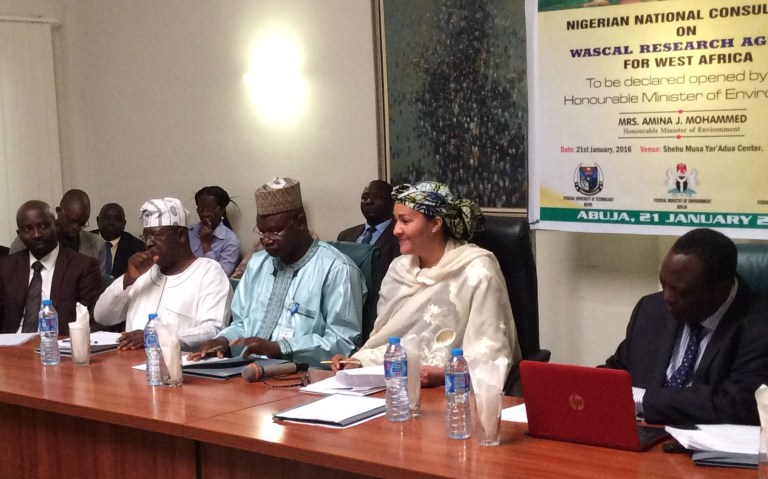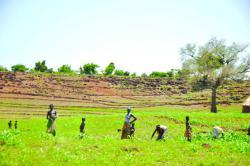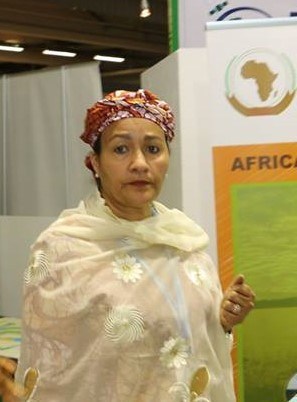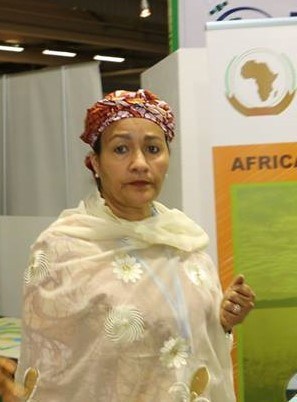The West African Science Service Centre on Climate Change and Adaptive Land Use has called for adequate improvement in capacity building in order to effectively manage climate change and its impacts in Nigeria.
Deux ministres ont rencontré les protagonistes de la crise au sein de l’Union Nationale des Producteurs de Coton du Burkina (UNPCB), le samedi 31 décembre 2016 à Bobo-Dioulasso. Il s’agit de Jacob Ouédraogo en charge de l’agriculture et de Batio Bassière en charge de l’environnement. L’objectif était de trouver un terrain d’entente afin de sauver la filière coton au Burkina Faso.
De 10 heures à 16 heures, la mission gouvernementale, appuyée par les autorités administratives déconcentrées, a rencontré tour à tour et à huit-clos, les deux groupes dirigés respectivement par Casimir Gnoumou et Karim Traoré. Après ces huit-clos s’est suivie une rencontre en plénière où le gouvernement a proposé sa feuille de route en deux points pour une sortie de crise.
Jacob Ouédraogo et son équipe ont suggéré en un premier point, que soit mise en place une administration provisoire, désignée par l’administration publique pour administrer les affaires courantes de la structure. Cette même administration se chargera de la conduite des élections qui pourront se tenir dans le premier trimestre de l’année 2017.
Le deuxième point de la feuille de route prévoit par chaque camp, d’une personne pour accompagner l’administration provisoire. Ceci, pour rendre la gestion plus transparente.
Pour ce qui est du mécanisme de la gestion transitoire, elle sera discutée ultérieurement entre les deux camps et les autorités.
C’est sur cette feuille de route que se sont accordés la mission gouvernementale et les deux camps protagonistes. Toute chose qui a réjoui le premier responsable de l’agriculture burkinabè et les leaders des deux camps. « On ne peut que se réjouir, car c’est ce qu’on attendait depuis », a confié Karim Traoré.
Deux ministres ont rencontré les protagonistes de la crise au sein de l’Union Nationale des Producteurs de Coton du Burkina (UNPCB), le samedi 31 décembre 2016 à Bobo-Dioulasso. Il s’agit de Jacob Ouédraogo en charge de l’agriculture et de Batio Bassière en charge de l’environnement. L’objectif était de trouver un terrain d’entente afin de sauver la filière coton au Burkina Faso.
De 10 heures à 16 heures, la mission gouvernementale, appuyée par les autorités administratives déconcentrées, a rencontré tour à tour et à huit-clos, les deux groupes dirigés respectivement par Casimir Gnoumou et Karim Traoré. Après ces huit-clos s’est suivie une rencontre en plénière où le gouvernement a proposé sa feuille de route en deux points pour une sortie de crise.
Jacob Ouédraogo et son équipe ont suggéré en un premier point, que soit mise en place une administration provisoire, désignée par l’administration publique pour administrer les affaires courantes de la structure. Cette même administration se chargera de la conduite des élections qui pourront se tenir dans le premier trimestre de l’année 2017.
Le deuxième point de la feuille de route prévoit par chaque camp, d’une personne pour accompagner l’administration provisoire. Ceci, pour rendre la gestion plus transparente.
Pour ce qui est du mécanisme de la gestion transitoire, elle sera discutée ultérieurement entre les deux camps et les autorités.
C’est sur cette feuille de route que se sont accordés la mission gouvernementale et les deux camps protagonistes. Toute chose qui a réjoui le premier responsable de l’agriculture burkinabè et les leaders des deux camps. « On ne peut que se réjouir, car c’est ce qu’on attendait depuis », a confié Karim Traoré.
The West African Science Service Centre on Climate Change and Adapted Land Use (WASCAL) has been urged to key into Nigeria’s Intended Nationally Determined Contribution (INDC) as it begins the process of preparing a Research Agenda on Climate Change for the sub-region for the period spanning 2016 to 2020.
Environment Minister, Mrs Amina J. Mohammed, who made the disclosure on Thursday (January 21, 2016) in Abuja at the opening of a daylong stakeholders’ workshop on the WASCAL Research Agenda 2016, stressed that the agenda would not only bridge the gap between educational institutions and the government, but also with the industries.
While suggesting that outcome of the consultations should be communicated to her office for onward communication to Mr President, she disclosed that, as stated in the INDC, Nigeria aims to reduce emissions by 20% below BAU (business as usual) by 2030, rising to 45% with support from the international community.
“This has provided the needed national roadmap for sustainable development at all levels and in all key stakeholder constituencies,” the minister stated, even as she lamented that Nigeria is one of the most climate vulnerable countries in the world.
Her words: “By 2050, it could cost between six percent and 30 percent of its GDP. Nigerians are already profoundly aware of the damage caused by climate change impacts. The 2012 floods that killed several people and displaced more that 2.1 million are stack realities. These impacts are threatening the livelihoods of everyday Nigerians as well as aggravate regional conflicts such as depletion of the Lake Chad in the North East and the associated collapse of economic and institutional fabric, which has proved a breeding ground for terrorism.”
According to her, the current administration has come with a Change Agenda that is committed to an economic transformation which places inclusive, green growth at its heart.
ALSO READ: Climate change poses risk to security, say military experts
“This change includes engaging our universities and research institutes in various fields to collaborate with the government to safeguard and improve on the lives of Nigerians. Mainstreaming climate change into all facets of our lives would indeed require the outputs from credible researches undertaken in these institutions. A successful government must fully develop its institutions to embark on research and innovations that focus on our national goals.”
Mrs Mohammed lauded WASCAL, saying that within a few years of its existence it (WASCAL) has created a niche for itself “and is willing to assist the nation develop its capacity through education and research, a must in this era of changing climate.”
She added: “With dire projections made popular by the IPCC (Intergovernmental Panel on Climate Change) that fueled the UNFCCC (United Nations Framework Convention on Climate Change) to bring together the global community consistently for more than a decade, WASCAL, a collaboration of 10 member countries and Germany, is blazing the trial in enhancing the capacity of tertiary institutions and their partners in filling the much needed research gap in the sub-region.
“By encouraging young West Africans to fill the much-needed research gap that highlights the need for policy makers to collaborate with scientists, WASCAL has claimed a leadership role that should be supported by organisations like WMO (World Meteorological Organisation), UNDP (United Nations Development Programme), FAO (Food and Agricultural Organisation of the United Nations) and indeed the international community.”
Prof. Adeniyi Osuntogun, Vice-Chair of the WASCAL Governing Board, highlighting WASCAL’s future emphasis, said that a core area is to improve the livelihoods of the population in the sub-region under climate change and climate variability (CC & CV). He added that the challenge to be met before all others is to improve the accuracy of the CC & CV predictions for the WASCAL mandate area.
He said: “Key also is the development of methods that permit the application of crop models at larger spatial areas to allow hydrological and agricultural decisions on various spatial and temporal scales. WASCAL envisages the identification of vulnerable people and areas, defined as those facing scarcity and degradation and transformation of natural resources and infrastructure.
ALSO READ: MOSOP demands urgent implementation of UNEP report
“WASCAL intends developing a set of solutions to deal with the diversity of the socio-ecological systems. Therefore, WASCAL will generate knowledge and understanding on how to accelerate the implementation of solutions and on a wider scale by disseminating information on how land use is to be managed to support and sustain ecosystem services.”
In designing WASCAL research agenda for Nigeria, Prof. Osuntogun listed specific attention to be paid to include:
focusing on Nigeria priorities and challenges on climate change and related issues
integrating of research with capacity building activities
consistency with over all goal of WASCAL research agenda
upholding of key principles of WASCAL’s research agenda
According to him, financial support is a critical and an essential factor in the formulation, promotion and implementation of a national research agenda on Climate Change, Climate Variation, Adapted Land Use and other related issues.
Prof. Jerome Omotoso, Chairman, Nigerian National Consultation/Dialogue, WASCAL Research Agenda 2016, identified goals of the consultative workshop as:
defining the crucial climate change challenges facing Nigeria
recommend the climate services and research needs for Nigeria to be included in the Research Agenda
determining the potential contribution of Nigeria to the implementation of WASCAL Research programme
identifying appropriate stakeholders to represent Nigeria at the regional consultation.
Prof. Emmanuel Oladipo of the University of Lagos, Akoka, in a keynote address submitted that WASCAL’s support to Nigeria for a science-based response to climate change challenge should be further strengthened by the establishment of a National Climate Change Commission or Agency that will be sustainably financed and strengthened to put the country in a good position to coherently address both mitigation and adaptation aspects of climate change challenge with global best approach and practices.
He added that products from the WASCAL initiative would constitute the crop of scientists in the Commission/Agency to provide much needed scientific information and data for decision making and help promote science-practice interactions for effective climate change adaptation.
ALSO READ: My father, Ken Saro-Wiwa, may not have died in vain
“By readily absorbing many of the WASCAL-produced scientists in the Commission/Agency, the young men and women graduates will be largely assured of post qualification employment, which should in turn encourage many more to get involved – a path towards sustainability of the initiative,” he added.
Director-General/CEO, Nigeria Meteorological Agency (NiMet), Dr Anthony Anuforom, disclosed in a goodwill message that climate change is already a reality in the country, and that the conventional methods for multi-sectoral approach to combat the challenges may require redirection.
According to him, the need for actions on mitigation and adaptation built around local resources, knowledge and innovations is very imperative.
He further underlined the need for more research activities on: climate and weather extreme events; regional climate scenario for impact assessments; key climate change impacts on biodiversity in Nigeria; terrestrial carbon dynamics; and, sectoral vulnerability, impacts and adaptation to climate change in the country.
Dr Anuforom said: “Nigeria holds an immense mitigation and adaptation potential in the context of climate change that has the potential to improve rural and urban livelihoods and address issues related to ecology.”
Professor Kehinde Ogunjobi, Director, WASCAL’s Graduate Studies Programme (GSP) in West Africa Climate System at the Federal University of Technology, Akure (FUTA) in Ondo State, described WASCAL as a regional centre for capacity building in climate change across West Africa. He added that WASCAL is also designed to help tackle challenges of climate change thereby enhancing resilience of human and environmental system to climate change and variability. The WASCAL programme is being funded by the German Federal Ministry of Education and Research (BMBF).
His words: “It is a great privilege that Nigeria is the only West African country having two WASCAL programmes – one at FUTA for Ph. D and at the Federal University of Technology (FUT), Minna for M. Sc degree.”
Countries under the WASCAL programme include Nigeria, Benin Republic, Niger Republic, Togo, Cote d’Ivoire, Senegal, Mali, Burkina Faso, The Gambia and Ghana.
The dialogue was organised by FUTA, FUT Minna, and Federal Ministry of Environment, Abuja.
Director, WASCAL Masters Programme on Climate Change and Adapted Landuse (CC&ALU) at FUT Minna, Dr Appolonia Okhimamhe, in a welcome address, stated that the research-focused centre is designed to help tackle severe challenges posed by climate change and thereby enhance resilience of human and environmental systems to climate change and increased variability.
“It does so by strengthening the research infrastructure and capacity in West Africa related to climate change and by pooling the expertise of 10 West African countries and Germany,” added Dr Okhimamhe, an Associate Professor of Geography and Head of the Department of Geography.
Le laboratoire de biologie et écologie végétale a organisé le vendredi 22 janvier 2016 à Ouagadougou, une journée de consultations nationales, dans l’optique de prendre en compte dans le programme de Wascal 2017-2020, des priorités en termes des besoins nationaux et en services sur les changements climatiques et l’utilisation adaptée des terres.
The West African Science Service Centre on Climate Change and Adapted Land Use (WASCAL) has been urged to key into Nigeria’s Intended Nationally Determined Contribution (INDC) as it begins the process of preparing a Research Agenda on Climate Change for the sub-region for the period spanning 2016 to 2020.
Environment Minister, Mrs Amina J. Mohammed, who made the disclosure on Thursday (January 21, 2016) in Abuja at the opening of a daylong stakeholders’ workshop on the WASCAL Research Agenda 2016, stressed that the agenda would not only bridge the gap between educational institutions and the government, but also with the industries.
While suggesting that outcome of the consultations should be communicated to her office for onward communication to Mr President, she disclosed that, as stated in the INDC, Nigeria aims to reduce emissions by 20% below BAU (business as usual) by 2030, rising to 45% with support from the international community.
“This has provided the needed national roadmap for sustainable development at all levels and in all key stakeholder constituencies,” the minister stated, even as she lamented that Nigeria is one of the most climate vulnerable countries in the world.
Her words: “By 2050, it could cost between six percent and 30 percent of its GDP. Nigerians are already profoundly aware of the damage caused by climate change impacts. The 2012 floods that killed several people and displaced more that 2.1 million are stack realities. These impacts are threatening the livelihoods of everyday Nigerians as well as aggravate regional conflicts such as depletion of the Lake Chad in the North East and the associated collapse of economic and institutional fabric, which has proved a breeding ground for terrorism.”
According to her, the current administration has come with a Change Agenda that is committed to an economic transformation which places inclusive, green growth at its heart.
Pour relever le défi, il est nécessaire, pour le Centre Ouest-africain, de service scientifique sur le changement et l’utilisation adaptée des terres (Wascal), de développer des capacités scientifiques et organisationnelles, d’identifier les questions prioritaires liées au changement climatique, ainsi que les capacités et les besoins de recherche au plan national.
Lors de la conférence de Paris de 2015 sur le climat, la communauté internationale a pris des engagements forts pour réduire le réchauffement climatique.
L’Afrique de l’Ouest est l’une des régions du monde vulnérable aux impacts des changements climatiques.
Chaque pays devait y contribuer et adopter une politique adéquate d’utilisation des terres et le Burkina Faso, pays sahélien, est fortement préoccupé par ces problèmes.
D’où la tenue de cette journée de consultations nationales, qui a réuni tous les acteurs du domaine, le vendredi 22 janvier 2016, à Ouagadougou.
The Federal Government of Nigeria has announced plans to review all environmental laws, Acts that have to do with the nation’s environment.
The West African Science Service Centre on Climate Change and Adapted Land Use (WASCAL), a research centre of excellence at the College of Engineering of Kwame Nkrumah University of Science and Technology (KNUST) has held a day’s workshop on consultation on climate change
environewsnigeria.com – 18-01-16
Short:
The West Africa Science Service Centre on Climate Change and Adapted Land Use (WASCAL) is in the process of preparing a Research Agenda on Climate Change for the West African region for the period spanning 2016 to 2020.
Visit page
Please note: The call for application has been extended to January 22, 2016.
WASCAL (West African Science Service Center on Climate Change and Adapted Land Use) is a large-scale research-focused Climate Service Center designed to help tackle severe challenges posed by climate change and thereby enhance the resilience of human and environmental systems to climate change and increased variability. It does so by strengthening the research infrastructure and capacity in West Africa related to climate change and by pooling the expertise of ten West African countries and Germany. Through the Graduate Studies Program WASCAL’s Capacity Building Program helps educate the next generation of scientists to attain an intimate knowledge of different climate related issues in order to help the region develop suitable management strategies.
The WASCAL Graduate Studies Program supports four Master’s and six Doctoral Programs implemented at ten lead Universities across West African countries. WASCAL provides full scholarships to the Doctoral and Master’s students in all the ten lead Universities with comprehensive training and research support. Doctoral students may spend up to six months at a host institution in Germany. The language of instruction is English. English and French language training programs are provided for all graduate students. Graduate students have access to the research facilities set up through WASCAL funding and located at various watersheds in West Africa. German partner universities collaborate with the Doctoral and Master’s Programs in the areas of curriculum development, visiting professorships and co-supervision of graduate students.
The WASCAL Graduate Studies Program offers its students:
High quality research and education on climate change and its impact on human environmental systems.
Up to six months at a host institution in Germany (Doctoral Programs only!)
Interdisciplinary working approach
International lecturers and supervisors
English language classes
Scholarship and research budget, including a personal laptop computer
Doctoral Programs
West African Climate System
Federal University of Technology, Akure (FUTA), Nigeria
Apply now: Download call for applications and application form and the recommendation letter
Climate Change and Water Resources
Université d’Abomey-Calavi (UAC), Benin
Apply now: Download call for applications and application form
Climate Change Economics
Université Cheikh Anta Diop de Dakar (UCAD), Senegal
Apply now: Download call for applications and application form
Climate Change and Biodiversity
Université Felix Houphouet Boigny (formerly Université de Cocody‐Abidjan), Côte d‘Ivoire
Apply now: Download call for applications and application form
Climate Change and Land Use
Kwame Nkrumah University of Science and Technology (KNUST), Ghana
Apply now: Download call for applications and referee form and application form
Climate Change and Agriculture
L’Institut Polytechnique Rural de Formation et de Recherche Appliquée, (IPR-IFRA), Mali and University of Cape Coast, Ghana
Apply now: Download call for applications and application form
Time Frame
The time frame of the doctoral programs is three and a half years. During the first three months, students take English and/or French language classes and common courses at the language centers. During the next 6 months student participate in lectures at their Graduate Research Program and prepare their proposals. After their proposals have been approved by their supervisors, the students conduct their field research for 12 to 24 months. For the remaining period of time, students will write up their thesis and are offered to spend up to six months at a German host institution.
Requirements
Candidates applying for a Doctoral Program must have a Master’s degree in a relevant discipline in addition to a BSc degree (second class upper division).
Citizenship in one of the WASCAL member country (Bénin, Burkina Faso, Côte d’Ivoire, The Gambia, Ghana, Niger, Mali, Nigeria, Sénegal, Togo)
Five credits including Mathematics and English Language that are also equivalent to Francophone university grading system
Gender-balanced selection decision
Applicant should show proficiency in English Language.
Meet additional requirement of the lead university
Master’s Programs
Climate Change and Human Security
University of Lomé, Togo
Apply now: Download call for applications and application form
Climate Change and Education
University of The Gambia (UTG), The Gambia
Apply now: Download application form
Climate Change and Energy
Université Abdou Moumouni de Niamey (UAM), Niger
Apply now: Download call for applications and application form
Climate Change and Adapted Land Use
Federal University of Technology, Minna, Nigeria
Apply now: Download application form
Time Frame
The time frame for the Master’s programs is two years. During the first year students participate in the course program of their Graduate Research Program and work on their research outline. Research will be conducted during the second year within a period of six to nine months. Students finish the program with writing up their thesis during the last three to six month.
Requirements
Candidates applying for Master’s Program must have a minimum BSc degree (second class upper division) in a discipline relevant to the respective program.
Citizenship in one of the WASCAL member country (Bénin, Burkina Faso, Côte d’Ivoire, The Gambia, Ghana, Niger, Mali, Nigeria, Sénegal, Togo)
Five credits including Mathematics and English Language that are also equivalent to Francophone university grading system
Gender-balanced selection decision
Applicant should show proficiency in English Language.
Meet additional requirement of the lead university
Application Process
The application process is handled jointly by WASCAL and the individual Graduate Programs. Applications can be submitted online to any of the Graduate Studies Program for the 2015/2015 season until January 22, 2016. The details of the application process can be found at the respective programs pages (see linkes above). Shortlisted candidates will be contacted and invited for interviews by January 29, 2016.
More information on the Graduate Studies Program and on open applications can be found here or at the respective universities websites.
The West Africa Science Service Centre on Climate Change and Adapted Land Use (WASCAL) is in the process of preparing a Research Agenda on Climate Change for the West African region for the period spanning 2016 to 2020.
In the bid to properly fulfill its mission as a regional service centre on climate change and ensure that the needs of all West Africa countries are fully embedded in the research agenda, WASCAL will on Thursday (January 21, 2015) in Abuja hold a national stakeholders’ consultation.
The daylong dialogue, scheduled to hold at the Shehu Musa Yar’Adua Centre, will involve interactions among stakeholders on water resources, agriculture, environmental policy management, climate-science, the media and civil society. Environment Minister, Amina Mohammed, will formally open the roundtable.
ALSO READ: When Amina Mohammed visited impacted sites in Lagos
The dialogue is being organised by the Federal University of Technology, Akure (FUTA) in Ondo State, Federal University of Technology (FUT), Minna in Niger State, and Federal Ministry of Environment, Abuja.
Futa logoFutminna logo
The Federal University of Technology, Akure (FUTA) in Ondo State, Federal University of Technology (FUT), Minna in Niger State, and Federal Ministry of Environment, Abuja are joint organisers of the Dialogue
The Federal University of Technology, Akure (FUTA) in Ondo State, Federal University of Technology (FUT), Minna in Niger State, and Federal Ministry of Environment, Abuja are joint organisers of the Dialogue
“The stakeholders will brainstorm and come up with outcomes and strategies that would contribute to policy direction on climate change for sustainable national development,” said Professor Kehinde Ogunjobi, Director, WASCAL’s Graduate Studies Programme (GSP) in West Africa Climate System at FUTA in Ondo State.
ALSO READ: Fresh funds emerge for developing country climate action
According to him, WASCAL is a regional centre for capacity building in climate change across West Africa. He added that WASCAL is also designed to help tackle challenges of climate change thereby enhancing resilience of human and environmental system to climate change and variability. The WASCAL programme is being funded by the German Federal Ministry of Education and Research (BMBF).
His words: “It is a great privilege that Nigeria is the only West African country having two WASCAL programmes – one at the Federal University of Technology, Akure for Ph.D and at the Federal University of Technology, Minna for M.Sc degree.”
Countries under the WASCAL programme include Nigeria, Benin Republic, Niger Republic, Togo, Cote d’Ivoire, Senegal, Mali, Burkina Faso, The Gambia and Ghana.
ALSO READ: States urged to emulate Akwa Ibom State’s climate initiatives


